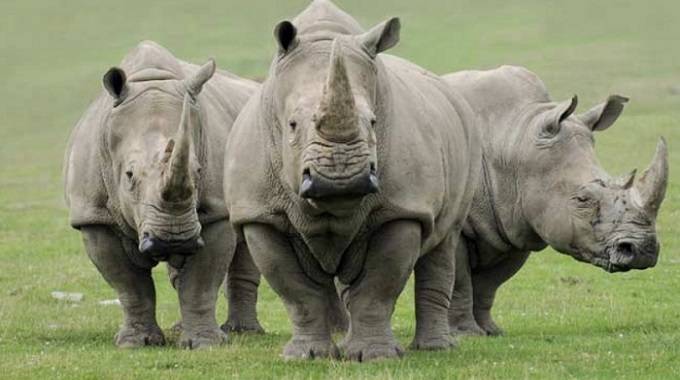
Emmanuel Koro
Lawyers for the Washington DC-based Safari Club International (SCI) have warned the state of California not to ban the importation of hunting trophies as it would be sued for violating the June 2020 U.S. Federal Government ruling by the Washington DC Circuit Court that these trophies be allowed into the U.S.
The trophies in question are of the African elephant, leopard, lion, black and white rhino, giraffe, Jentink’s duiker, plains zebra, mountain zebra, hippo, baboon, hyena and pangolin.
The ruling by the Washington DC circuit court acknowledged that hunting contributes to wildlife conservation. Sadc governments, rural communities that benefit from hunting and members of hunting groups in the U.S. and worldwide welcomed this decision that totally dismisses the ongoing animal rights groups that hunting is harmful to wildlife conservation.
According to the 1997 World Wide Fund For Nature (WWF) wildlife hunting quota-setting manual, the main purpose of a quota is to identify the number of animals that can be killed without reducing the population.
The Washington DC Circuit Court decision was made following the SCI, together with other American hunters associations’ appeal against the Obama Administration imposed blanket ban on hunting trophy imports of endangered species that didn’t accept a case-by-case importation policy that acknowledges that not all countries’ wildlife populations are endangered.
“Therefore, this landmark Court decision is sweet and hard fought victory not only for the SCI but also the African countries that benefiting from the hunting industry,” said, SCI Conservation Manager Joseph Goergen.
An exclusive statement released by SCI lawyers says that the Carlifornia State Bill SB 1175 aimed at prohibiting possession of what the state considers to be endangered wildlife trophies “is illegal with respect to species listed under the U.S. Endangered Species Act (ESA).”
“The ESA does not allow U.S. States to prohibit activities that are permitted by the federal government under the ESA; the legal term is that State actions are “preempted” under U.S. federal law,” said the SCI lawyers, Regina Lennox and Jeremy Claire. “The U.S. Fish and Wildlife Service already regulates the importation of elephant, leopard, lion, and rhino among other species covered by this Bill. California will be sued if the Bill [SB 1175] becomes law, and ultimately, SCI believes that a court will find that this law cannot apply to ESA-listed species.”
However, the SCI lawyers said that six months, maybe more would “likely pass before the court could declare the law illegal with respect to these species.” In the interim, California residents would not be able to possess these species in California.
Meanwhile, the SCI CEO, Laird Hamberlin said that “the real victory from this ruling [Washington DC Circuit Court ruling] belongs to the hunters who will now encounter a more factually driven importation process as part of their crucial role in African conservation. SCI deeply appreciates the D.C. Circuit Court’s wise decision.”
Current status of California SB 1175 Bill
This Bill is not yet law. It must be passed by both houses of the California legislature and signed by the Governor to become law. It passed the California State Senate on June 26, 2020. It now goes to the California Assembly for consideration. If the Bill passes the California Assembly, it will go to Governor Gavin Newsom, who will need to decide whether to sign it into law or to veto/reject it. In 2018, a similar Bill was vetoed by then-Governor Brown. However, the current Governor’s willingness to enact or veto this Bill is unknown.
Support for the California SB 1175 Bill
The Bill is strongly supported by animal rights groups, including a California organization called “Social Compassion in Legislation” and the Center for Biological Diversity.
The SB 1175 Bill claims that the prohibition of wildlife trophies in the state of California is needed because across Africa elephant populations have declined 30 % since 2007; lion populations have declined 43% since 1993; and black rhino have declined 97.6% since 1960.
“In order to address these diminishing numbers,” the Bill seeks to “reduce the demand for new trophies” of the covered species.
Contrary to these claims, Sadc countries from where most of the prohibited trophies come don’t have endangered elephant populations. They are elephant-overpopulated with Botswana’s elephant population currently dying in hundreds in what most veterinarians and ecologists worldwide widely believe to be caused by elephant overpopulation. The UN Convention on International Trade In Wild Species of Fauna and Flora (CITES) country-by-country case elephant population assessment method called split listing. According to this method, most Sadc countries are elephant over-populated. The Sadc countries’ giraffe, plains zebra, hippo, baboon and hyena are also not endangered.
Opposition to the California SB 1175 Bill
Many hunting organisations oppose the Bill, including SCI. SCI has been and remains strongly engaged at every step to try and defeat this Bill. SCI has submitted numerous letters in opposition to the Bill and engaged its members to contact their State representatives to oppose the Bill.
“The governments or wildlife authorities of Mozambique (ANAC), Namibia (MET), Tanzania (TAWA), Zambia (DNPW), and Zimbabwe (ZimParks) have sent letters opposing this Bill [SB 1175 Bill], as well as the CAMPFIRE program in Zimbabwe and the Namibian Association of CBNRM Support Organisations,” said the exclusive SCI lawyers statement. “The Permanent Secretary of Zimbabwe’s Ministry of Environment, Climate, Hospitality and Tourism Industry testified during a public hearing on this Bill before the California Committee on Natural Resources and Water.”
Emmanuel Koro is a Johannesburg-based international award-winning environmental journalist who has written extensively on environment and development issues in Africa.
